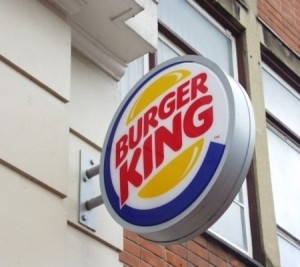
Burger King has become a franchise pioneer in the past few years by aggressively shifting its marketing strategy toward converting its stores into franchises. The company only owns 51 of its 14,000 stores, or just 1 percent, according to The Wall Street Journal. McDonald and Wendy's, by comparison, both own about 20 percent of their stores while remaining units are run by franchise owners. The bold strategy has allowed Burger King to shift much of its day-to-day operations to franchise owners and achieve a 90 percent gross profit margin. Burger King's latest move, the purchase of a Canadian franchise with a similar business model, is sure to elevate the burger restaurant's franchising strategy to new heights.
Birds of a feather
Tim Horton's, a coffee and donut shop with locations across Canada, follows a franchising philosophy similar to Burger King. The Canadian chain operates minimal locations while largely allowing franchise owners the freedom to push sales how they see fit. Tim Horton's has also been able to enjoy an extremely lucrative profit margin by nearly eliminating the expenses involved in running the store and instead earning revenue through royalty payments.
The success of another franchise-heavy brand lead Burger King to acquire the coffee chain for just over $11 billion. Burger King hopes to continue the momentum of its royalty-based revenue stream by expanding Tim Horton's in the United States and abroad. Franchisees for both companies will now have access to the other restaurant's resources. The Wire notes that this sharing of information would allow Tim Horton and Burger King franchisees alike to branch out into another industry with relative ease.
Eyes on expansion
Franchises have expanded their network overseas for years. Even Starbucks, a brand that has traditionally been skittish of franchising, has recently become willing to sell stores to European franchisees. McDonald's success in franchising overseas has been well documented and can be easily observed by American travelers in hundreds of foreign countries.
Much of this expansion has been prompted by oversaturation. Franchises that have been operating in the United States for decades are more likely to run out of space for new locations. Burger King already has locations across the globe and its new acquisition of Tim Horton's is sure to cause the coffee chain to open new international locations.
Managing the brand
Burger King's business model may inspire other franchise chains to make a similar shift to a primarily royalty-based revenue stream. However, this model also comes with its own unique set of challenges. This is particularly relevant when it comes to managing a company's branding strategy. Burger King has responded to this challenge by doubling its number of regional managers and increasing store visits by corporate representatives. The company hopes to find the perfect balance of leading its brand in the right direction while also allowing franchise owners to run stores and train employees at their own discretion.